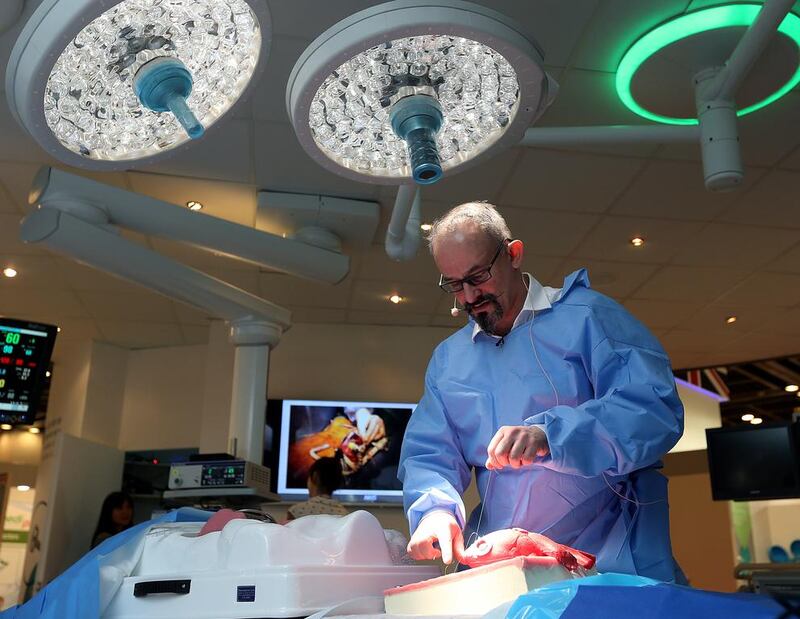DUBAI // Cardiovascular disease is soaring in the Arabian Gulf while it declines in western countries.
Forty per cent of people in the Gulf suffer cardiovascular problems compared with 26 per cent in European countries. The disparity shows that the issue can be tackled with preventive medicine and public health education, experts told the Arab Health Conference yesterday.
“The Gulf states are facing an epidemic of cardiovascular disease, although the rate is falling in the developed world. This shows that better public health and prevention can reduce it,” said Dr John Chambers, a reader in cardiovascular medicine at Imperial College London.
Heart disease is the leading cause of death in Abu Dhabi.
“Urbanisation, pollution, smoking and dietary habits are all leading to an increased number of cases of heart problems,” said Dr Ravi Nair, chairman of cardiovascular medicine at Cleveland Clinic Abu Dhabi.
He called for better testing and risk assessments to reduce the number of heart disease cases.
The World Health Organisation predicts that the number of people who will die from cardiovascular diseases, mainly heart disease and strokes, will reach 23.3 million a year by 2030.
Dr Hussein Saadi, consultant endocrinologist and chief of medical services at Cleveland Clinic Abu Dhabi, said creating awareness of the link between diabetes and heart disease was crucial.
“If someone has diabetes, they are more likely to suffer from a heart problem. Similarly, if someone has a heart problem, in many cases they have diabetes as well. Also, the more severe the problem, the more vessels that are affected, the higher the risk of diabetes.”
A YouGov survey commissioned by The National and published this week suggested that one in five did not know that obesity carried the risk of cardiovascular disease, cholesterol problems, diabetes, sleep apnoea and breathing problems, and that diabetes increased the risk of cardiovascular disease, renal failure, foot amputation, eye failure or nerve damage.
“Most of my patients do not know these things, although it does depend on their level of education,” Dr Saadi said.
“We tell those who are at high risk about how they can reduce it and we tell the others about preventive measures. We need to educate people about the relation between these diseases.”
arizvi2@thenational.ae






